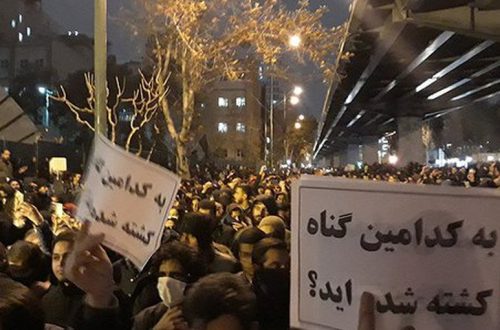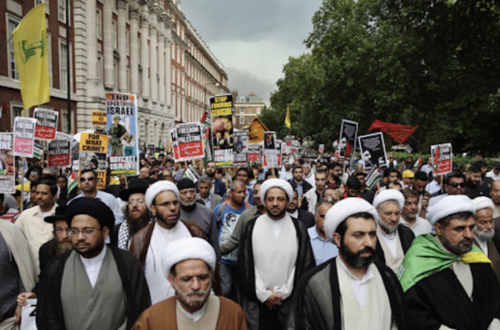This is a guest post by J.J. Hodari
Generals, they say, always fight the last war. In our age, some commentators do too.
The war in Iraq has mis-shaped the consciousness of a generation. All intelligence is now routinely treated as murky at best, or misinformation at worst. Politicians are thought to yearn for that ‘Mission Accomplished’ moment, ignoring the body count. Talk of freedom, human rights and democracy is assumed to be a trick to persuade voters to support military actions with darker purposes.
This toxic legacy has distorted the debate about Iran’s bomb. ‘’Don’t listen to the nuclear nonsense’ says the New Statesman on its cover.
But the differences between Iran and Iraq should be obvious.
First, Obama isn’t Bush. Many have argued that Rumsfeld and Cheney allowed ideology to trump evidence. It’s a very different story for Iran. President Obama extended his hand to the Iranians in his first Cairo speech in 2009 and expressed the hope that, in return, the Iranians would “unclench their fist.” His patience has been Job-like. He even soft-pedalled criticism of an Iranian regime that was brutally repressing young idealists who dared to dream of freedom. His reward? ‘Death to America!’ and the headlong pursuit of a nuclear arsenal.
Second, while many argue there was a rush to war in 2003 (ignoring 12 years of international efforts to control Saddam), the Western effort to dissuade Iran from pursuing nuclear weapons has been a long one indeed. ‘Critical dialogue’ was tried by the international community throughout the 1990s with no success. Carrot after carrot was tried, including Russian offers to enrich uranium for an Iranian civil programme. The EU has offered ‘broad co-operation in the technological and economic field as well as in the political and security field’. In 2006 the UN Security Council imposed the first of four multilateral resolutions authorizing bans on exports of nuclear, missile, and dual-use technologies, limited travel by dozens of Iranian officials, and froze the assets of forty individuals and entities. In desperation, cyber-attacks delayed the programme for some months.
Third, no one is questioning the evidence this time. In 2011 the IAEA is unequivocal about where all these carrots and sticks have got us. “The agency has serious concerns regarding possible military dimensions to Iran’s nuclear program” and “information indicates that Iran has carried out activities relevant to the development of a nuclear explosive device.” Even Netanyahu’s sharpest Israeli critics do not doubt the seriousness of the threat. Sanctions on the central Iranian bank and oil industry could now be should be the international response, but Russia and China are likely to veto.
These facts should have produced a sober debate about how the international community should confront one of the greatest challenges of our generation. Sadly, many commentators have simply re-rerun their Iraq era op-eds. The New Statesman sneers at ‘the Iran Delusion’. The Guardian’s Simon Jenkins thinks Iran is a “proud and ancient civilisation” with a “modicum of pluralist democracy” so he assumes it will not do anything as barbaric as seek to wipe out Israel. Anyway, he adds, if it does “that is Israel’s business”.
We must see Iran for what it is. The 2011 Rule-of-Law index from the World Justice Project (WJP) ranked Iran last in the world on fundamental rights among the 66 nations surveyed in the report. And Jenkins defence of Iran-the-country as an ‘ancient and proud civilisation’ misses the point; Iran-the-regime has been viscerally hostile to that great Persian civilisation.
Think of what Iran has already done without the bomb. Then ask yourself what it may do with the bomb. The regime will gain the confidence to extend its regional hegemony and act as a sub-imperialist power in the region. Its use of proxies is likely to become bolder as it will feel immune. Hopes for peace in the region will surely recede and the new cold war between Iran and Saudi Arabia will intensify.
By merely threatening to acquire the bomb the Iranian regime frightens its gulf neighbours at least as much as it concerns Israel, and risks triggering a nuclear arms race in the most unstable region in the world.
And the dynamics set in motion by the Iranian bomb may cloud over the Arab Spring, marginalising the search for democracy and self-determination. What hope for the moderates and those who campaign for freedom?
Enough group-think. Iraq is not Iran. The time for decisive international action is now.
J.J. Hodari works at the Britain Israel Communications and Research Centre. He writes in a personal capacity.


